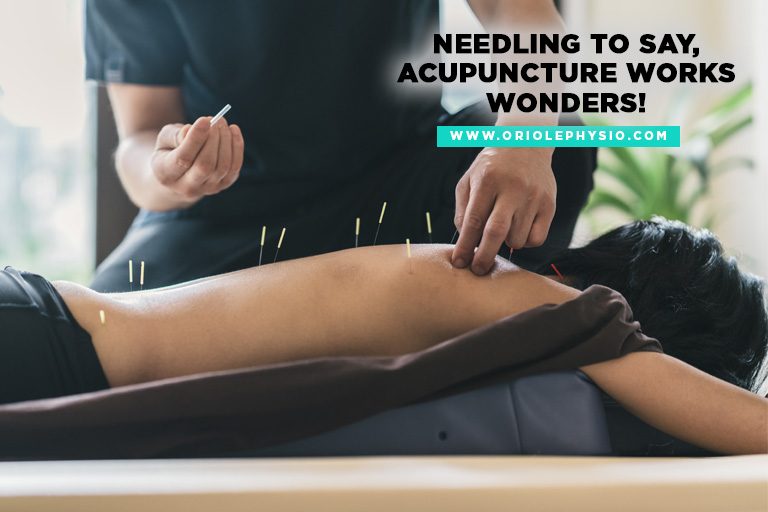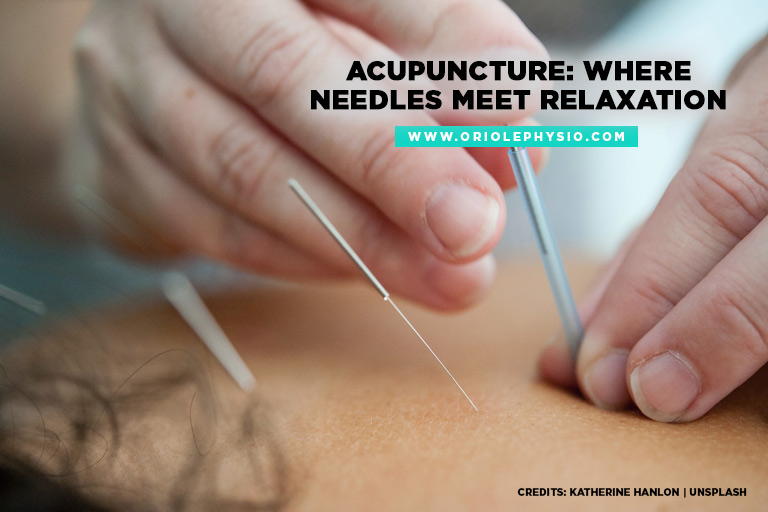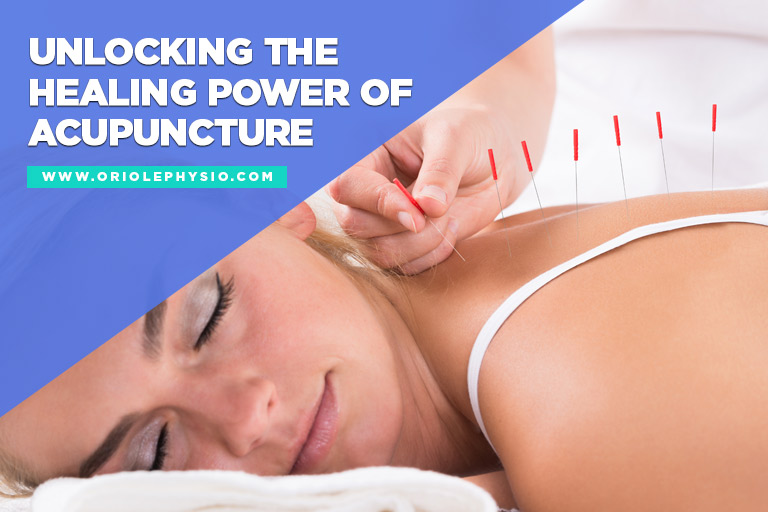Unlocking the Healing Power of Acupuncture
Acupuncture has been a part of traditional Chinese medicine for over 2,500 years, and its popularity continues to grow worldwide. In Canada, acupuncture has become a mainstream complementary therapy widely used for various health concerns. If you’re curious about how acupuncture works and how it can benefit you, keep reading.
The Evolution of Acupuncture in Ontario, Canada
Acupuncture has come a long way in Ontario, Canada, and it’s fascinating to look back at its history. Believe it or not, acupuncture debuted in Ontario in the 1880s, but it was only popular among the Chinese community.
Fast forward to the 1970s, acupuncture began to gain mainstream acceptance and entered a period of growth. Acupuncture quickly grew into an established profession with the inflow of Chinese immigrants in the 1980s and 1990s.
One significant milestone was passing the “Traditional Chinese Medicine Act” in 2006, which recognized acupuncture as a legitimate healthcare profession in Ontario. This act put acupuncture on equal footing with 23 other healthcare professions and integrated it into Ontario’s healthcare system.
This law and regulation have promoted the establishment of “pure Chinese Medicine” in Ontario. This legislation has opened up a world of possibilities for acupuncture, and it’s exciting to see what the future holds for this ancient practice in Ontario.
How Acupuncture Works

Acupuncture is a holistic healing technique to address various health conditions. This ancient therapy deliberately inserts small, sterilized needles into certain body regions known as acupuncture points.
The placement of these needles is based on the concept of meridians, energy pathways that connect various organs and systems in the body. By inserting needles into these points, acupuncture practitioners can help restore energy flow and bring balance back to the body.
But how does acupuncture work, exactly? When the needles have been placed, they stimulate nerve fibres that convey messages to the brain, causing endorphins, the body’s natural painkillers, to be released. This procedure can help relieve pain and inflammation while promoting relaxation and well-being.
Acupuncture boosts blood flow to the treated region and promotes endorphin release. This increased blood flow aids healing by bringing oxygen and nutrients to the affected area.
Overall, acupuncture is a safe and effective method of promoting healing and improving general health and well-being. It can be vital to your treatment plan whether you suffer from chronic pain, stress and anxiety, or other health issues.
4 Different Types of Acupuncture
There are so many types of acupuncture, each with its unique approach, including:
- Traditional Chinese acupuncture – This type of acupuncture is the most popular method, where it involves inserting needles into particular acupuncture sites along the meridians.
- Japanese acupuncture – This type of acupuncture is more gentle than traditional Chinese acupuncture and focuses on using thinner needles and shallower insertion depths.
- Korean acupuncture – This type combines traditional Chinese acupuncture with other modalities, such as moxibustion, which involves burning herbs near the skin to stimulate acupuncture points.
- Ear acupuncture – Also known as auriculotherapy, this type of acupuncture involves stimulating specific points on the ear to treat various health conditions.
Benefits of Acupuncture

Acupuncture is a versatile treatment offering myriad benefits for physical and mental health, and some of them are as follows:
Pain Relief
Chronic illnesses such as back pain, neck discomfort, and arthritis can be effectively treated with acupuncture. Acupuncture can give long-term comfort without medication by boosting the body’s natural painkillers.
Stress and Anxiety Relief
Acupuncture has a relaxing effect and can aid in the reduction of tension and anxiety. This is especially advantageous for people with chronic stress or anxiety problems.
Improved Sleep Quality
Many people who receive acupuncture report improved sleep quality, which means the procedure may be especially beneficial for people with insomnia or other sleeping difficulties.
Digestive Health
Acupuncture can aid in improving digestive function and relieving symptoms associated with illnesses such as irritable bowel syndrome (IBS). Acupuncture can help relieve discomfort and improve overall digestive health by restoring balance to the digestive system.
Fertility and Reproductive Health
Acupuncture has been shown to improve fertility in women and may also benefit men with infertility. Additionally, acupuncture can help to regulate menstrual cycles and relieve symptoms of conditions such as endometriosis.
Other Benefits
Acupuncture may also be helpful for a range of other health concerns, including allergies, asthma, headaches, and depression. By promoting overall balance and well-being, acupuncture can help improve many aspects of health and quality of life.
What to Expect Before, During, and After
If you’re new to acupuncture, you may be curious about what happens during a typical session. Here’s a breakdown of what you can expect before, during, and after the session:
- Preparation: Before your first session, your acupuncturist will likely take a detailed medical history and discuss your health concerns. This will assist them in determining the optimal treatment plan for you. You may be asked to fill out a questionnaire for further information about your health.
- During: Depending on the area to be treated, you will lie on a comfortable table, face up or face down. After that, your acupuncturist will start putting tiny, sterilized needles into particular places on your body. The needles can be put anywhere from a few centimetres to a few inches deep. As the needles are implanted, you may feel a small prickling, although this is normally not unpleasant. You can relax for up to 30 minutes after the needles have been inserted. Certain acupuncturists may also utilize heat or electrical stimulation to increase the treatment’s results.
- After: After the session, you may feel relaxed and slightly lightheaded, with mild side effects such as soreness or bruising at the needle insertion sites. Your acupuncturist may suggest self-care measures to help manage discomfort, and multiple sessions may be needed to achieve desired results. Your acupuncturist will work with you to create a customized treatment plan and schedule, and it’s important to follow their recommendations to optimize the benefits of the treatment.
Side Effects of Acupuncture
When conducted by a trained and certified acupuncturist, acupuncture is usually considered safe. The needles used are sterile and disposable, and there is no risk of infection. However, like any medical therapy, there may be a few adverse reactions.
Some patients may feel moderate discomfort, bruising, or bleeding at the needle insertion area. More significant side effects, including nerve injury or organ puncture, are exceedingly rare when a professional and experienced practitioner performs the therapy.
Book an Acupuncture Session at Oriole Physiotherapy & Rehabilitation Centre
If you want to try acupuncture in North York, make an appointment with Oriole Physiotherapy & Rehabilitation Centre. Our qualified and experienced acupuncturists will listen to your unique needs and build a tailored treatment plan to assist you in obtaining the best outcomes possible. Call us at 416-221-0772 to make an appointment and take the first step toward better health and wellness! If you need other treatments to complement your acupuncture sessions, you may book massage therapy and physiotherapy at our North York clinic!

